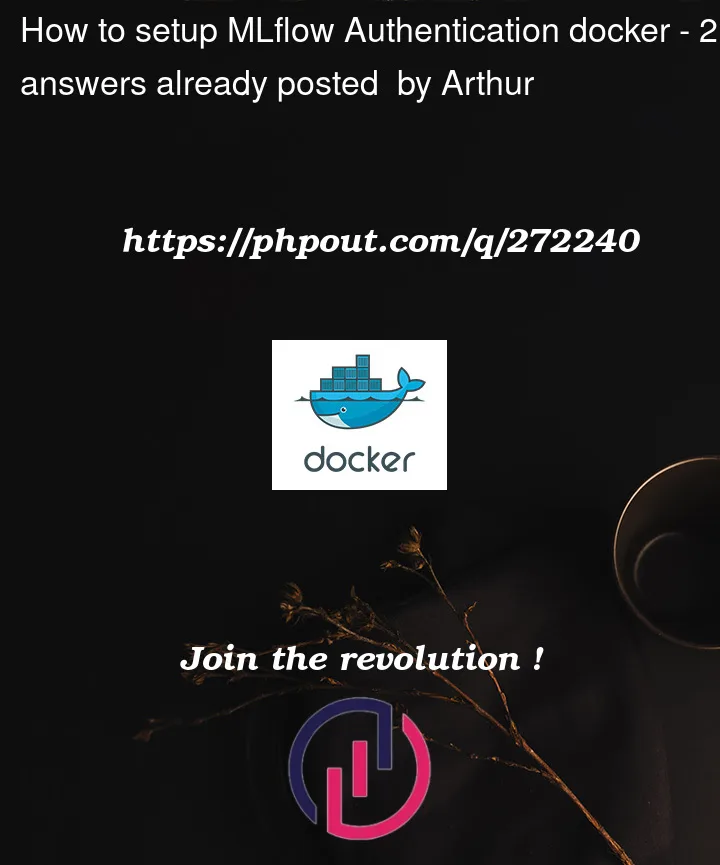I want to configure MLflow Authentication to rw per user. My docker file looks like this:
https://pastebin.com/yD9ACWzp
In the nginx environment I added
- MLFLOW_TRACKING_USERNAME=administrator
- MLFLOW_TRACKING_PASSWORD=xxxxxxxxxx
And I enabled authentication, but now I can’t log in
Many thanks for the advice and suggestions…




2
Answers
Thank you! I also noticed that my artifacts are not written, can I configure them in local storage under the user?
Many thanks.
As I read on the MLflow Authentication documentations, I think you can add an Environment Variable in the app service of your Docker Compose like so:
here is the full docker-compose.yaml:
hope it’s helped!, if you encounter another problem I would be glad to help you!.